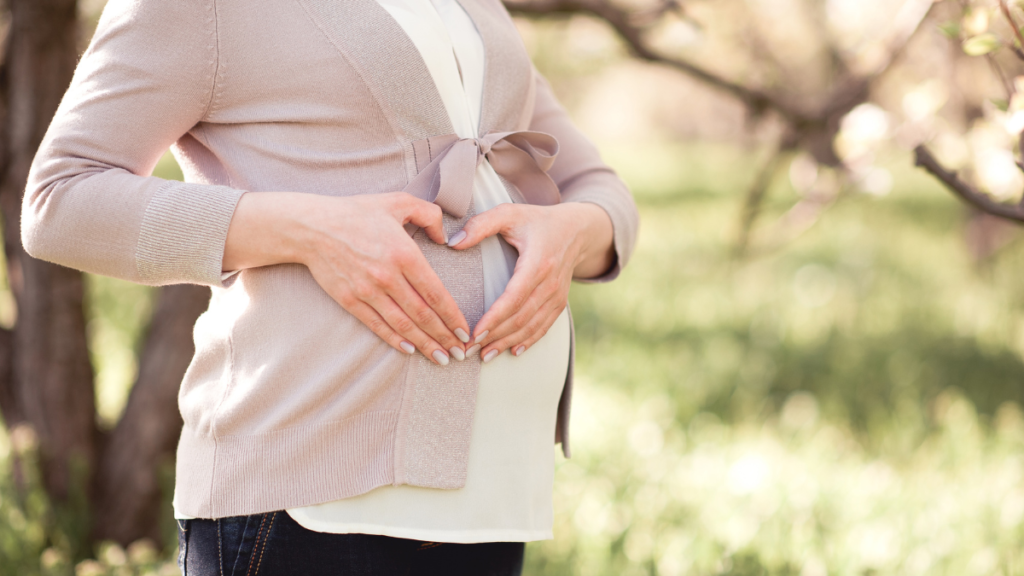
Congratulations, week twenty-one marks the halfway point in your pregnancy. But with just over four months left and the pressure of choosing a name to preparing the home the reality of parenthood is beginning to sink in.
Read on to find out more about you and your baby’s development at twenty-one weeks.
Your baby now weighs about 11 to 12-and-a-half ounces and is nearly 10-and-a-half inches long which is about the same size as a carrot.
Their arms and legs are in proportion from this week, neurons are now connected between the brain and muscles and cartilage throughout the body is turning to bone. All these developments combine to give your baby more control over their movements.
Meanwhile, your developing baby still has a great deal of room in your womb until the uterine walls start closing in, however, there’s plenty of space for twisting, turning and even an occasional somersault.
By this stage your baby is already starting to sleep and wake in subtle cycles. Ultrasounds show that unborn babies may even settle into a favourite sleeping position.
Your baby’s skin is transparent and gradually turning from pink to red, as capillaries form underneath. Their eyebrows are becoming thicker, lips are more defined, and eyes are moving rapidly under his closed eyelids.
Although your baby’s ears began to form early on, they’ll start to be able to hear around now. They’ll be able to make out sounds from outside, including your voice and the voices of people around you.
Your baby’s heartbeat is now loud enough to be heard through a simple stethoscope, but the beat can be difficult to distinguish from your own. Listen for the faster rhythm: Your baby’s heartbeat is about twice as fast as your own.
Now that you’re starting to look pregnant and those kicks can no longer be mistaken for gas, the reality of pregnancy is probably beginning to sink in. And with it, you may find, a few ambivalent or anxious feelings. Don’t worry — and hang on.
At some point in pregnancy (and usually once that pregnancy becomes a very visible reality) just about every expectant mother (and father!) begins to feel anxiety and fear. And not only is it completely normal to feel anxious, it’s healthy to acknowledge it.
Talk your feelings over with your friends who’ve had babies — they’ll reassure you that they’ve experienced the same kind of thoughts. Most importantly, discuss your fears with your partner, who’s probably just as in need of a good heart-to-heart.
Backaches, especially in the lower back, are quite common during pregnancy. Your growing uterus is shifting your center of gravity and pulling your lower back forward. Meanwhile, the hormone relaxin is loosening every joint and ligament in your body, which will allow your pelvis to expand when it’s time for delivery. Whenever you sit use a footrest to elevate your feet slightly and treat yourself to a warm bath for additional relief.
Your pregnancy hormones and your increased metabolism can leave you feeling hot and sweaty. Make sure you stay cool by wearing loose clothing and drinking plenty of water. Switch on a fan and try to stay as comfortable as possible.
As your belly grows during your pregnancy, you may notice some reddish-brown, pink, or purple lines on your skin. Stretch marks form when your skin stretches over a short period of time and can appear along your belly, hips, thighs, buttocks, and breasts. Your skin may start to feel itchy, too; applying moisturizer should help.
Mild headaches are common in pregnancy, often caused by hormones or dehydration. However, if you are more than 20 weeks pregnant, have a bad headache that lasts for more than two or three hours and tylenol doesn’t help, it could mean you have high blood pressure. This can be a sign of pre-eclampsia.
At twenty-one weeks you should have had your halfway-point ultrasound, but if not contact your physician to have to one arranged as soon as possible. This is possibly the last time you will have an ultrasound.
For more information on development and milestones at every stage of your pregnancy, visit our pregnancy week by week guide.

© 2023 All rights reserved Baby & Toddler - part of parent promotions